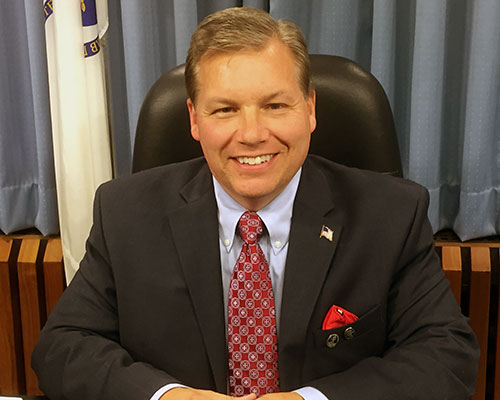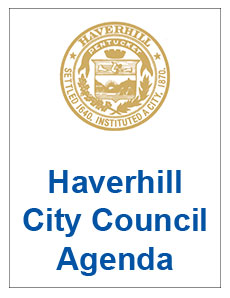A decade ago, a comprehensive citywide recycling program seemed an impossible dream.
On Tuesday, City Councilor Colin F. LePage will update his colleagues and the rest of the city on how Haverhill has saved more than $1 million since 2010 through single-stream curbside recycling and trash reduction.
The council meets beginning at 7 p.m. in the Theodore A. Pelosi Jr. City Council Chambers on the second floor of City Hall. The meeting is open to the public.
LePage’s update comes on the heels of Haverhill’s receipt of $35,000 from the state Department of Environmental Protection as a reward for its recycling efforts. The money comes with strings, however. It must be reinvested in Haverhill’s recycling efforts, either to pay for public education, containers or personnel, for example.
The city’s recycling efforts have come a long way since LePage raised curbside recycling as an issue at the 2008 edition of Team Haverhill’s Possible Dreams brainstorming session. At that time, residents interested in recycling any of their trash had to drive to the DPW headquarters on Primrose Street and toss their paper, glass and metals into separate bins.
In 2009, Mayor James J. Fiorentini instituted the city’s first curbside pilot program for some residents on the Tuesday trash route.
LePage and Team Haverhill Recycling Committee Co-Chairman Remi DePommier became the city’s Pied Pipers of trash reduction, talking to civic groups, school organizations and newspaper editors — anyone who would listen — about the environmental and economic benefits of citywide single-stream, curbside recycling, in which residents could put all their recyclables out in one receptacle on their regular trash day.
At the time, the city’s recycling rate was around 10 percent. Today, it is roughly double that.
Single-stream, curbside recycling began citywide during the summer of 2010. At that time, Haverhill paid about $1.5 million a year to get rid of its trash.
Over the past few years, new contracts with Capital Waste, the city’s hauler, and Covanta Energy, which takes the city’s trash, have reduced those costs.
At Tuesday’s meeting, LePage will offer specifics on savings that the city has achieved by instituting the automated trash collection program that limits household refuse to one barrel.



who weote haverhills recycling regs former open mike host jack bevelaqua.
Great news! Now the city should start allowing residents to enjoy a bi annual cleanup week where you can put out anything non harzardous like was done back in the 80’s
dumb idea
You think? Maybe post your address so Haverhill residents can drop off at your house instead of illegally on every Haverhill back road.